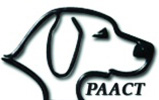 |
Stan Rawlinson Dog Behaviourist & Obedience Trainer The Original Doglistener |
 |
Hi, my name is Stan Rawlinson. I'm a dog behaviorist and obedience trainer. This is Kye, he's a white German shepherd and he's one of my rescue dogs. Today I'm going be talking about how to stop dogs biting. Most of it starts when the dog is very young, at the puppy stage, now for those who've had dogs and had puppies, they will understand that the set of teeth that puppies have got should not be on a puppy, they should be on a piranha or a hypodermic needle and basically, what happens, is nature has given that dog or that puppy those very sharp teeth for one reason and one reason only, and that reason is to hurt, very simply, it's there to hurt.
When or if they stayed with their siblings, their brothers and their sisters or if they're in the wild and they've put too much pressure when they were playing, and the dogs would react because of their incredibly sharp teeth, if they put too much pressure on the mother's teat, same thing she would react, exactly the same way. At 18 weeks, those little horrible teeth drop out and when they drop out, then the new teeth start coming through which are far more dangerous and the muscles that are in the jaws begin to form. Up till 18 weeks, they have very very little muscle power and that's why the sharp teeth are so sharp so they do hurt. So if you have a dog that's a puppy, obviously
Kie here is not a puppy and I doubt if I can ever get him to bite me, he's never bitten me in his life and he's never bitten anyone. He's a big softy and he just loves people, he's crying for cuddles because that's what he loves, don't you? Yes, you do. Yes I know. But I'm going to pretend he's bitten me and this is what you do, and it's quite important that the sound happens, I want you to mimic what the mother would do or the siblings would do if that youngster had bitten, whether it's a hand or whatever. So here we go, Owwwww. He moved his head away but I didn't move my hands now. That's vitally important because if I move my hand, he'll, that little puppy will think it's a game, and chase it and bite even more, so now what I'm going to do, I'm going to do that again. Owwwwwwww. See what Kie has done? He's actually moved away from my hand and he's now sniffing and going: "Aw I didn't hurt you, honestly." And he's licking me.
Did it once more. Owwwwwwww. Once again, he moves away and that's what the puppy does, but don't move your hand really, really important and after a period of time, you can then teach him not to bite at all, but this part is called bite inhibition to teach him to, even in excitement if he puts his jaws around my arm or my hands, then it would be like a butterfly touching me, not like some hideous dog that could break your bones
You could lose a finger, but not if you teach bite inhibition, and there's no way I can put my hand in this dog's mouth. It wouldn't make the slightest bit of difference because he understands bite inhibition, he was taught early enough and that's vitally important. Okay, the key to this is don't move the hand away, short sharp Owww, , the dog will move away, he thinks he's hurt you, yeah you can make a big fuss of it, "Oh that really hurt me, yes it did, yes it did, aw, aw. " And that's how to teach a dog bite inhibition.